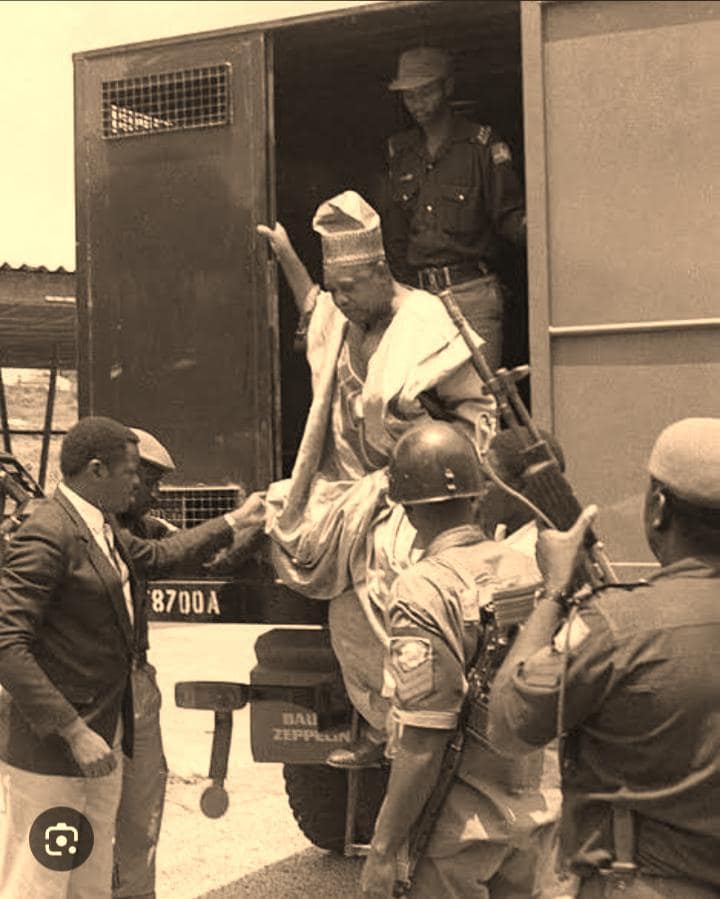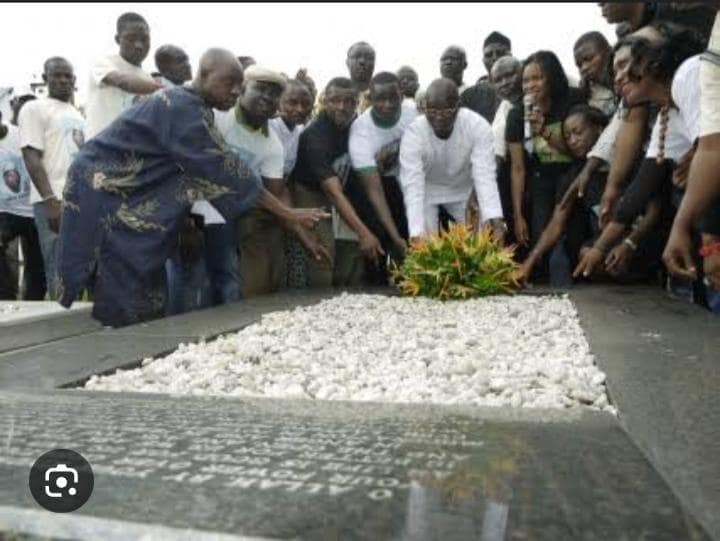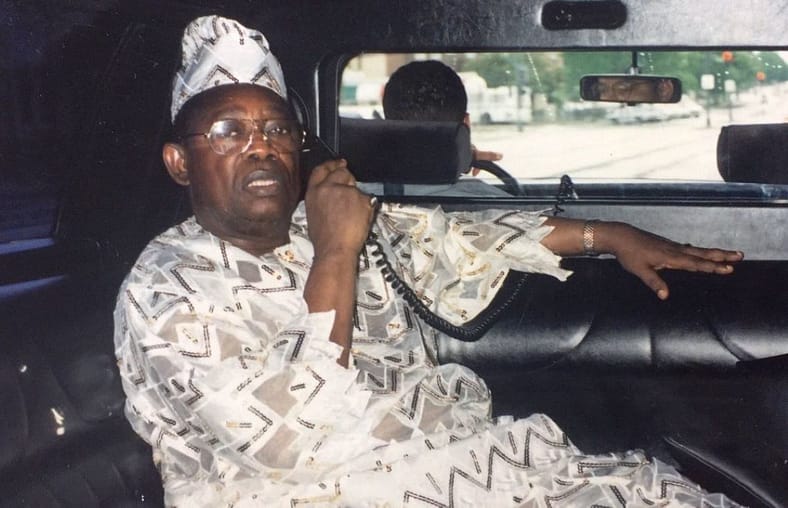In the annals of Nigerian history, few names evoke as much intrigue, admiration, and heartbreak as MOSHOOD KASHIMAWO OLAWALE (MKO) ABIOLA. Hailed as a man of the people, his life story is a tapestry of extraordinary success, political ambition, and a tragic fight for democracy that ended in controversy and loss.

Born on August 24, 1937, in Abeokuta, Ogun State, MKO Abiola rose from humble beginnings to become one of Africa’s wealthiest and most influential figures. His sharp business acumen led him to build a vast empire, with interests spanning media, banking, and telecommunications. But it wasn’t just his financial empire that endeared him to Nigerians, it was his philanthropy. Abiola was a man who could connect with people from all walks of life, earning him the nickname “AARE ONA KAKANFO” (Generalissimo) of YORUBALAND.
THE ELECTION THAT CHANGED EVERYTHING
June 12, 1993, marked a turning point in Nigeria’s political history. Abiola ran for president under the Social Democratic Party (SDP), in what remains one of the fairest elections ever held in the country. His campaign slogan, “HOPE ’93,” resonated with millions who saw him as a unifying force across ethnic and religious lines. The results showed Abiola winning by a landslide against his opponent, Bashir Tofa.

But the victory was short-lived. The military government, led by General Ibrahim Babangida, annulled the election, citing “irregularities” that were never substantiated. This decision sparked outrage and protests nationwide, plunging Nigeria into political turmoil.
THE PRICE OF COURAGE
MKO Abiola refused to back down. On June 11, 1994, he declared himself the rightful president of Nigeria. This bold move led to his arrest by General Sani Abacha’s regime. Abiola spent the next four years in solitary confinement, steadfast in his belief that he was the legitimate leader of Nigeria.
As the world called for his release, Abiola’s plight symbolized the struggle for democracy in Africa’s most populous nation. His imprisonment and the brutal repression of pro-democracy activists brought Nigeria under international scrutiny.
A TRAGIC END

On JULY 7, 1998, just weeks after Abacha’s sudden death, MKO Abiola died in custody under suspicious circumstances. Official reports claimed he suffered a heart attack during a meeting with U.S. officials, but many Nigerians remain skeptical. His death was a devastating blow to the pro-democracy movement and left unanswered questions about the forces behind his detention and demise.
LEGACY OF JUNE 12
Today, MKO Abiola is celebrated as a martyr of democracy. In 2018, the Nigerian government posthumously honored him by declaring JUNE 12 as DEMOCRACY DAY, a public holiday to commemorate his struggle and sacrifice. The government led by President Buhari, in 2018, also conferred the title of GRAND COMMANDER OF THE FEDERAL REPUBLIC (GCFR) to Moshood Kashimawo (MKO) Abiola, the presumed winner of the June 12, 1993 election.

MKO Abiola’s story is not just about the man who won an election but never ruled; it is about the resilience of Nigerians in the face of tyranny. His life remains a reminder of the price of democracy and the unfinished journey toward true freedom.
MKO Abiola’s legacy continues to inspire new generations. His story teaches us that democracy is never free, it is earned through courage, sacrifice, and the unwavering belief that the will of the people must prevail. But the real question remains: What forces truly silenced MKO Abiola, and why?


